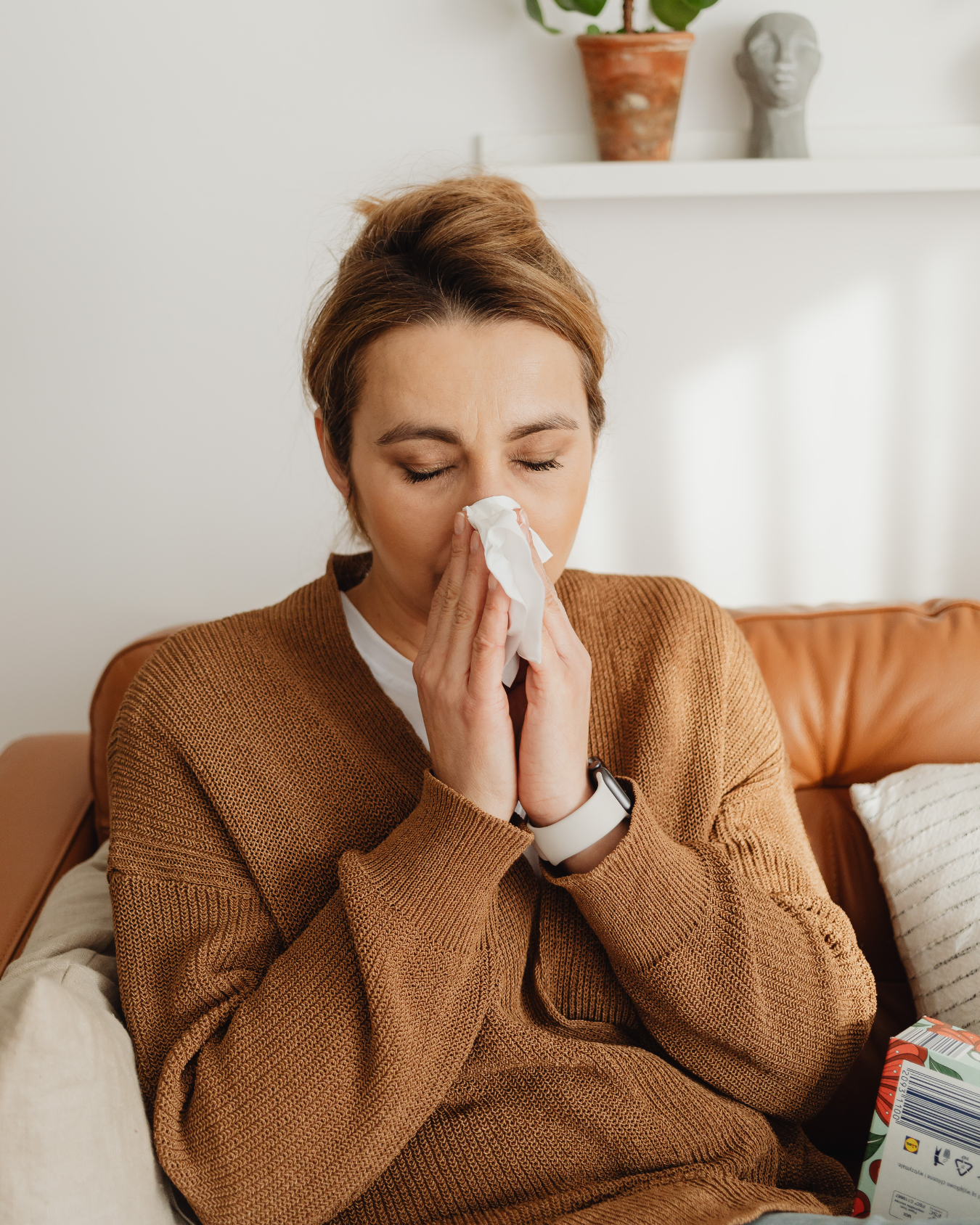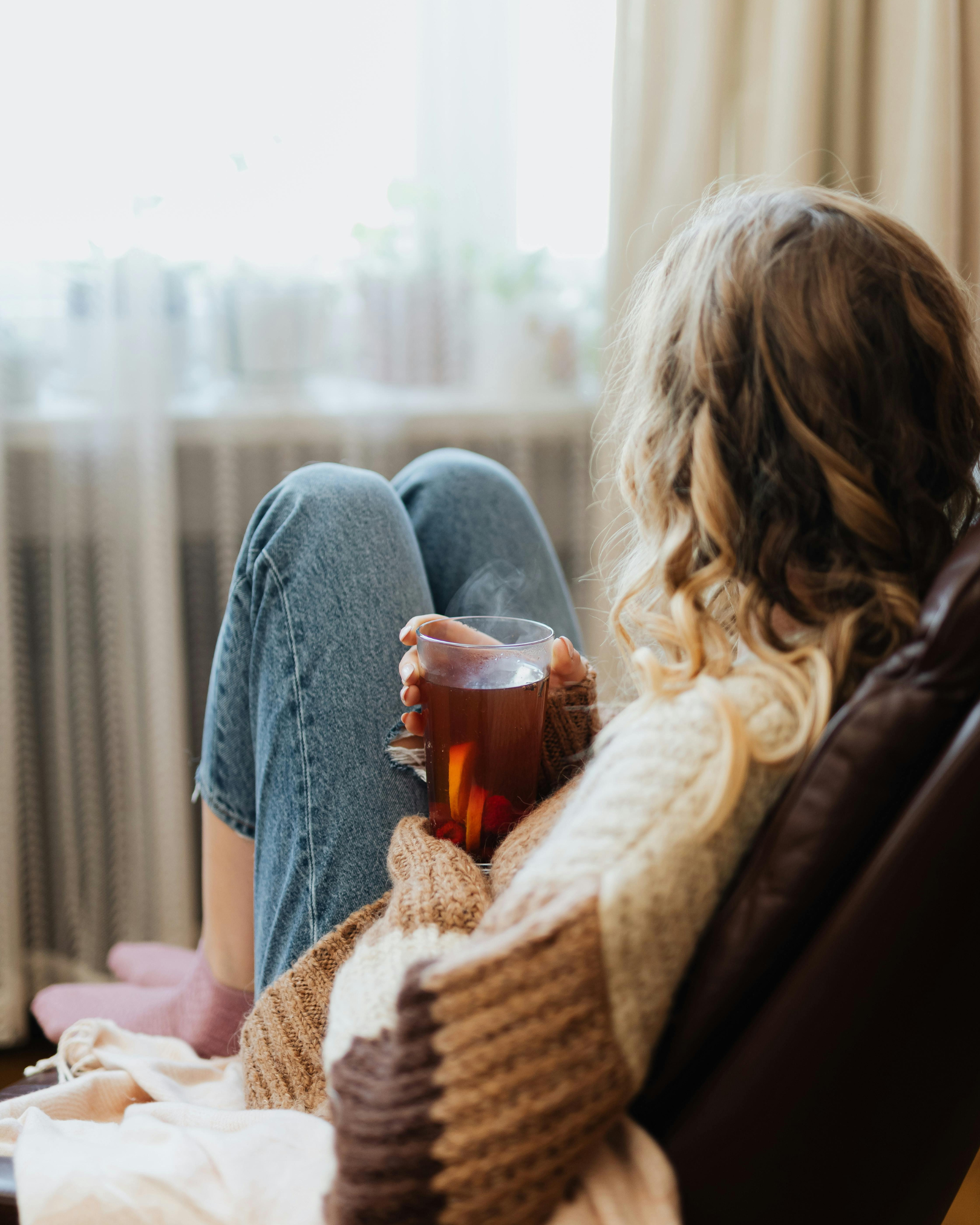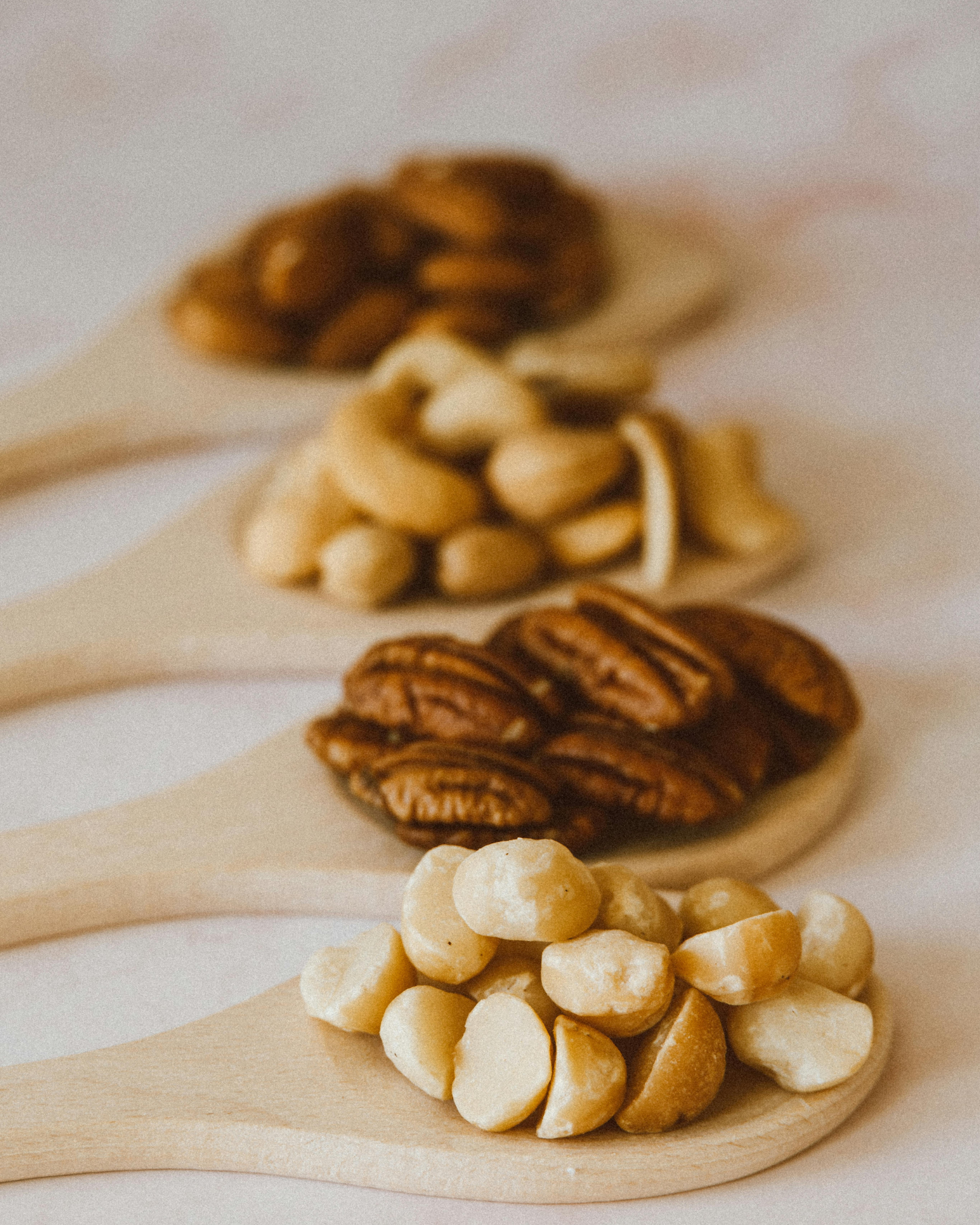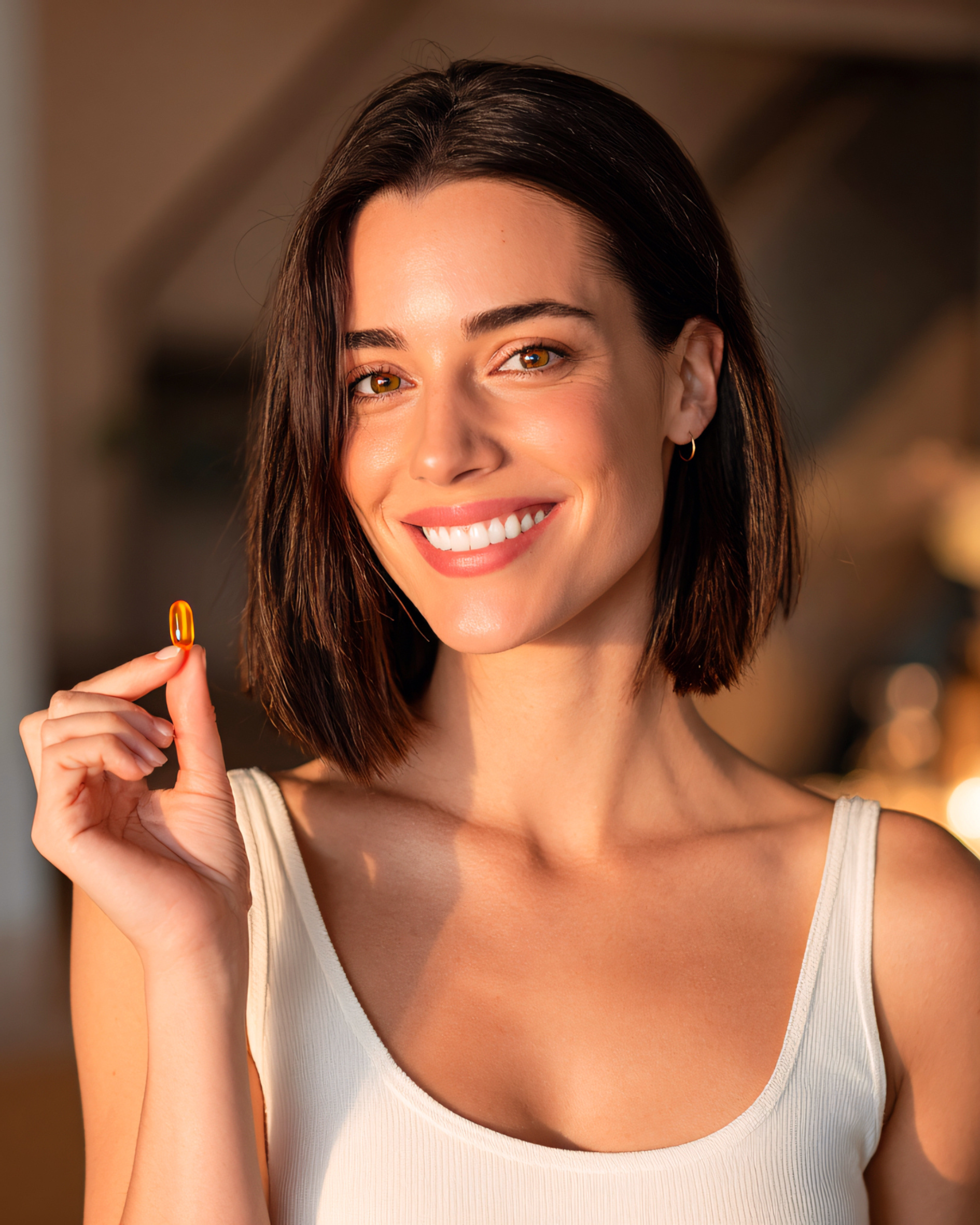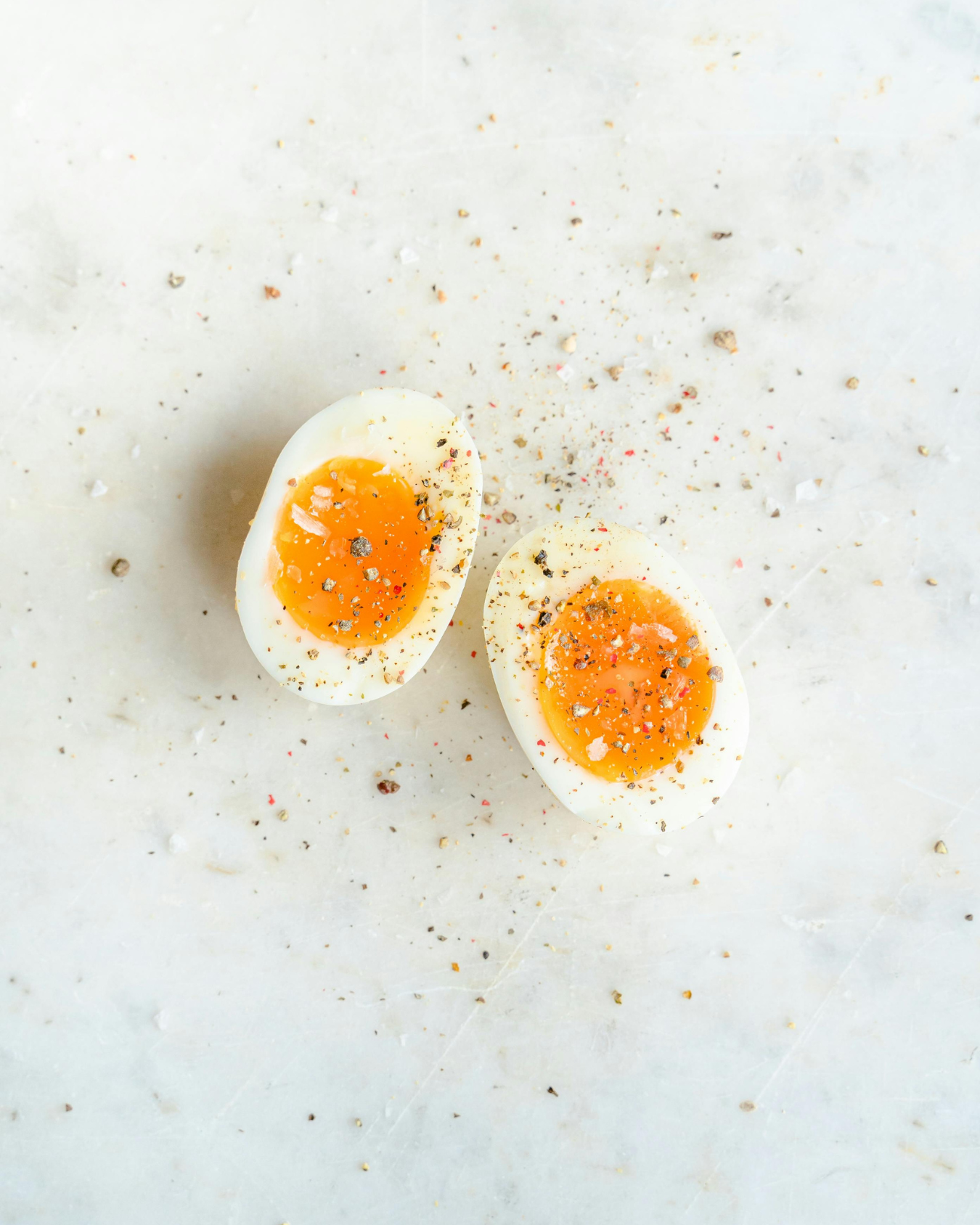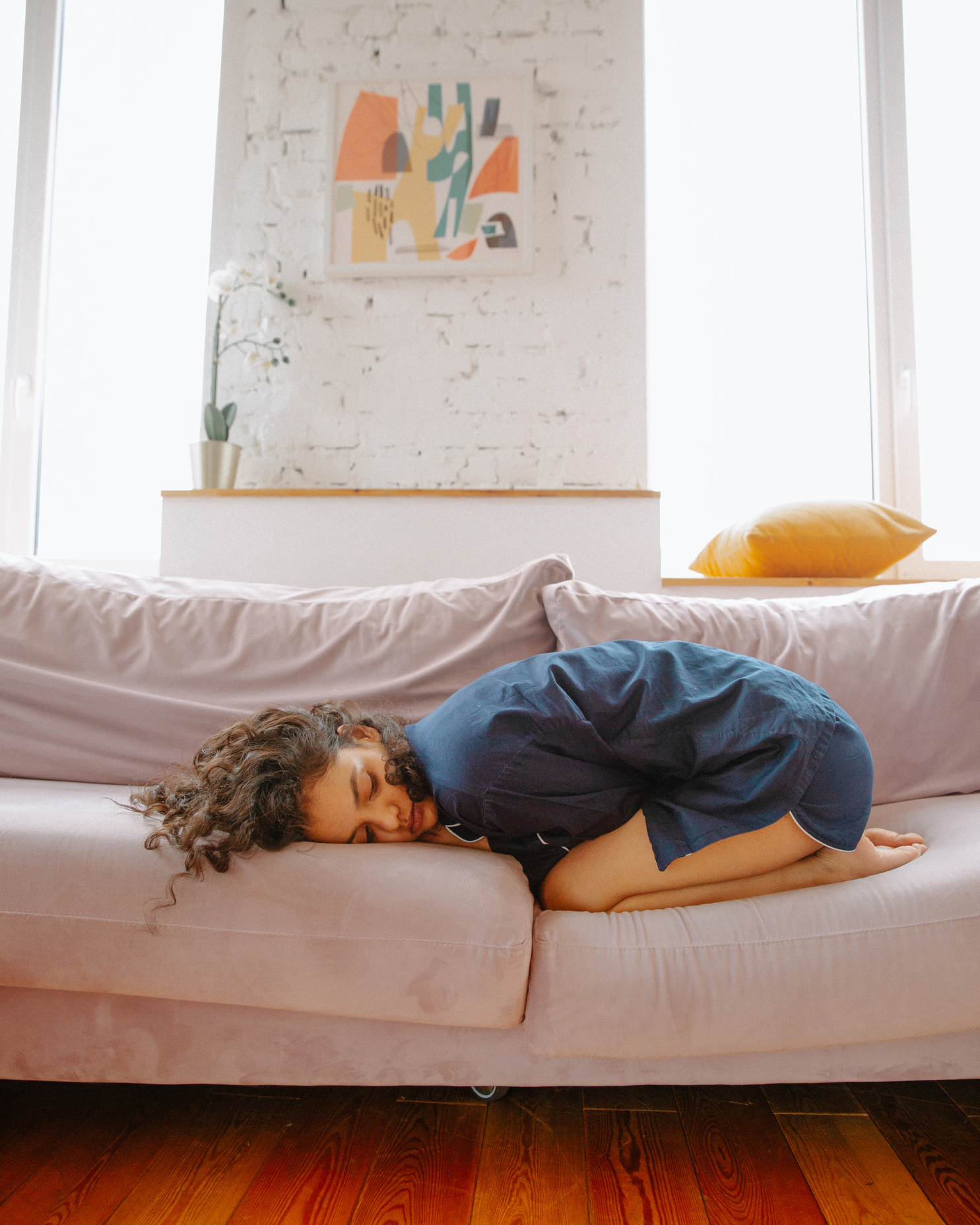Nieuw bij Goldea? 15% kennismaking met code: FRESHSTART15
Reading time: 8 minutes
In a world where depression treatment often seems limited to chemical antidepressants , we want to tell a different story. There's growing scientific evidence for the power of natural remedies and healthy lifestyle tools as valuable support for depressive symptoms . From our perspective, we'll explore the potential of natural antidepressants and how they can contribute to recovery, without the side effects often associated with synthetic medications.
First (book) tip: Natural antidepressants
Dr. Eberhard Wormer, a German physician, confirms in his book "Natural Antidepressants" that there's often more at play than just a biochemical imbalance. A deficiency of essential nutrients, hormonal imbalances , or a lack of sunlight are also factors that play a role in the development of depression . He emphasizes that "gentle" methods can make a significant contribution. This inspires us daily to explore the possibilities of natural remedies. Hence this blog post, because medication often comes with side effects.
Natural alternatives to antidepressants
Synthetic antidepressants can be effective, but they often come with a number of side effects that impact quality of life . Common side effects include:
- Headache
- Nausea
- Drowsiness or insomnia
- Sexual problems
- Irritability and restlessness
- Stomach and intestinal problems
For older adults, long-term use of antidepressants can even lead to hyponatremia (salt deficiency), which can pose serious health risks. This can occur after just nine days. ( source )
Natural alternatives to antidepressants
Over 10% of the Dutch population uses antidepressants , with a striking majority of women and the elderly . A growing number of children are also being prescribed antidepressants. This raises questions about alternative, natural treatments that can help lift people out of the trough of depression without side effects. Below, we share several natural alternatives from our expertise that can contribute to a better mood.
1. Vitamin B1 – The 'mood vitamin'
Vitamin B1 plays a key role in converting glucose into energy and influences the neurotransmitters that regulate our mood. Symptoms of a deficiency include irritability and feelings of depression. Research shows that supplemental B1 helps alleviate burnout symptoms.
2. Vitamin B3 – For a stable nervous system
Vitamin B3, essential for the nervous system, can cause symptoms such as restlessness, weakness, and depression when deficient . For those who perform heavy work or intense sports, B3 is a valuable supplement.
3. Vitamin B6 – For neurotransmitter production
Vitamin B6 is important for the production of neurotransmitters like serotonin and dopamine, which directly influence our mood. B6 deficiencies are often found in people with depression, but also in women with PMS .
4. Vitamin B9 (Folic Acid) – Essential for energy and mood
Folic acid strengthens the immune system and helps produce the natural antidepressant SAMe, an amino acid essential for maintaining a good mood . A deficiency often results in persistent weakness and depressive symptoms . A folic acid supplement can offer a solution in these cases.
5. Vitamin B12 – The basis of energy balance
A B12 deficiency is common, especially among vegetarians and vegans. This deficiency can lead to exhaustion and mood swings . B12 is one of the most important vitamins for mental resilience, and taking it daily can help alleviate symptoms of fatigue and low mood.
Our Vegan Multi contains vitamins B1, B3, B6, B9, B12 and can serve as daily support.
6. Vitamin D3 – Sun in a jar
Vitamin D3 is largely produced in our bodies by sunlight. In the Netherlands, we often experience a D deficiency, especially in winter , which can worsen feelings of depression. So, be sure to take a vitamin D3 supplement during the months marked with an "R."
With our Vitamin D3 you can optimally support your body, especially during the dark months.
7. Omega 3 fatty acids – For healthy brain function
Omega-3 fatty acids, commonly found in fish oil and algae oil, have been shown to have an antidepressant effect comparable to synthetic antidepressants. They support brain function and reduce inflammation.


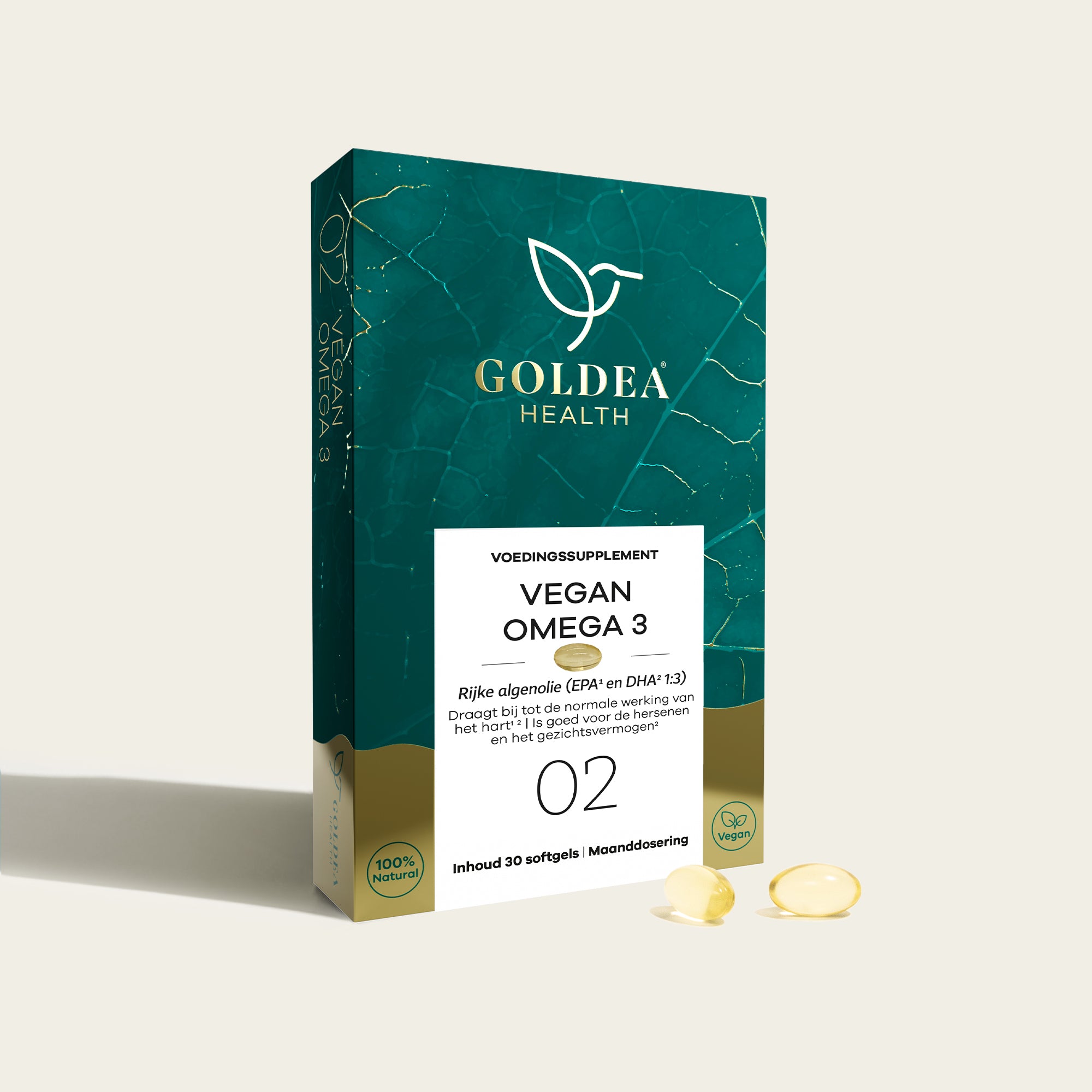

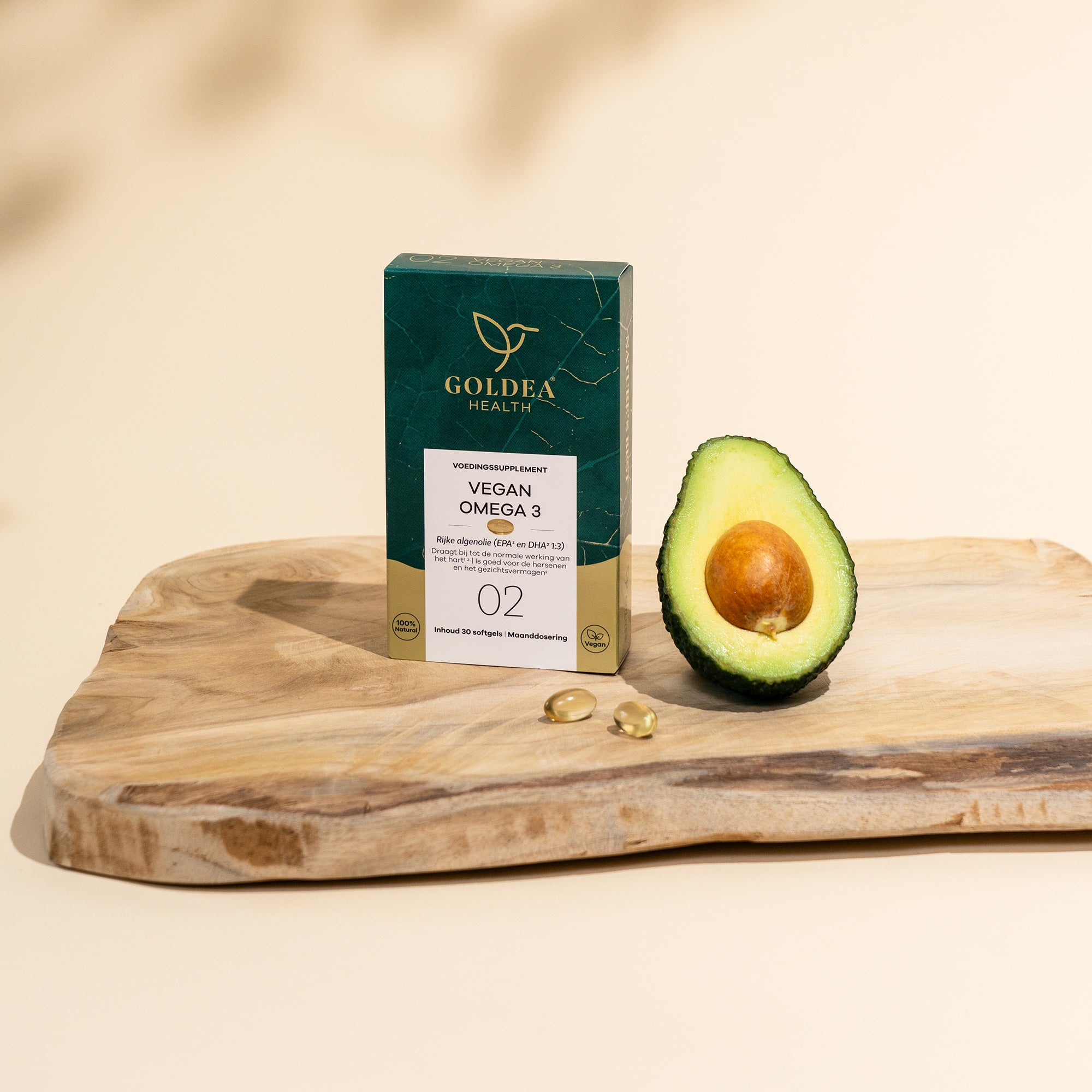
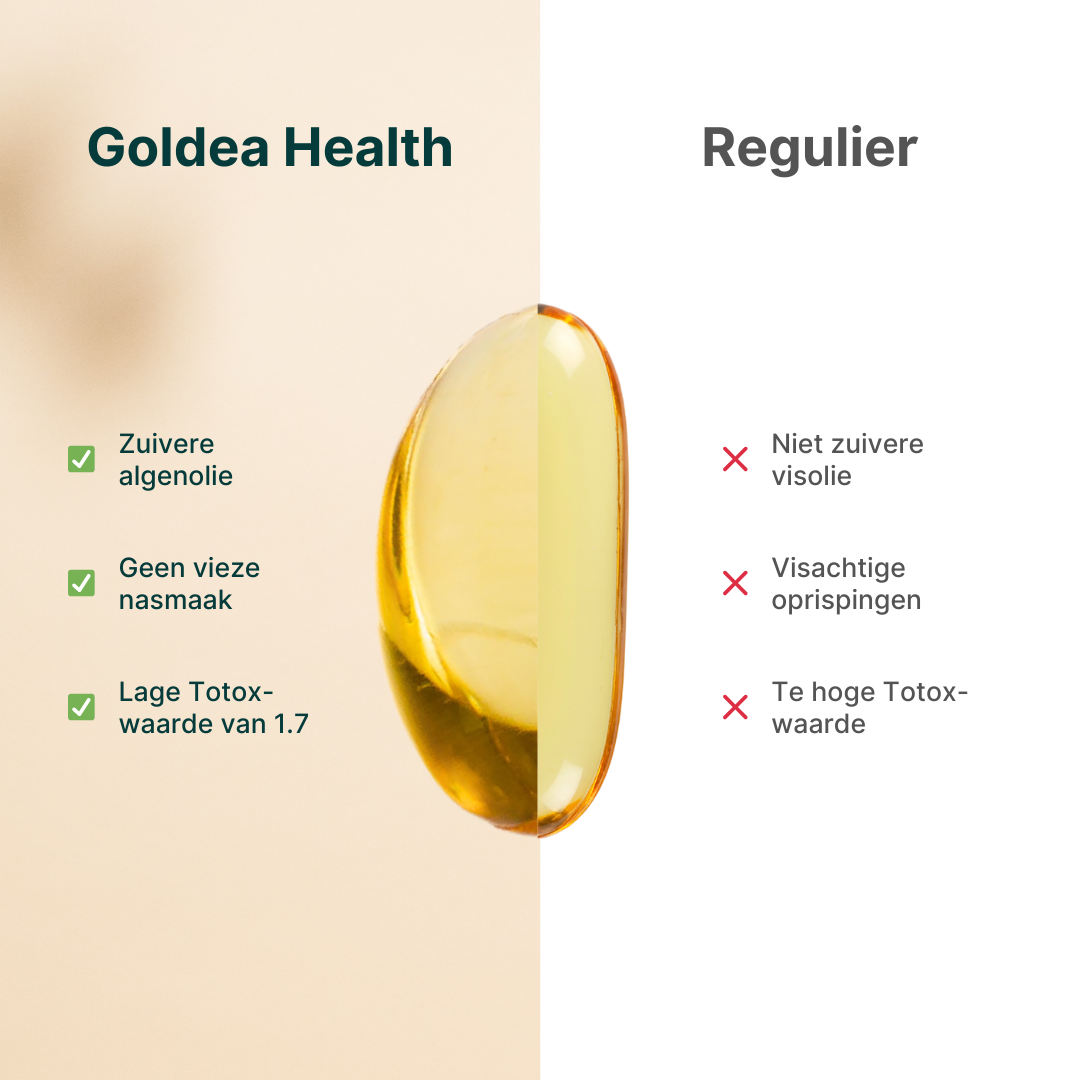
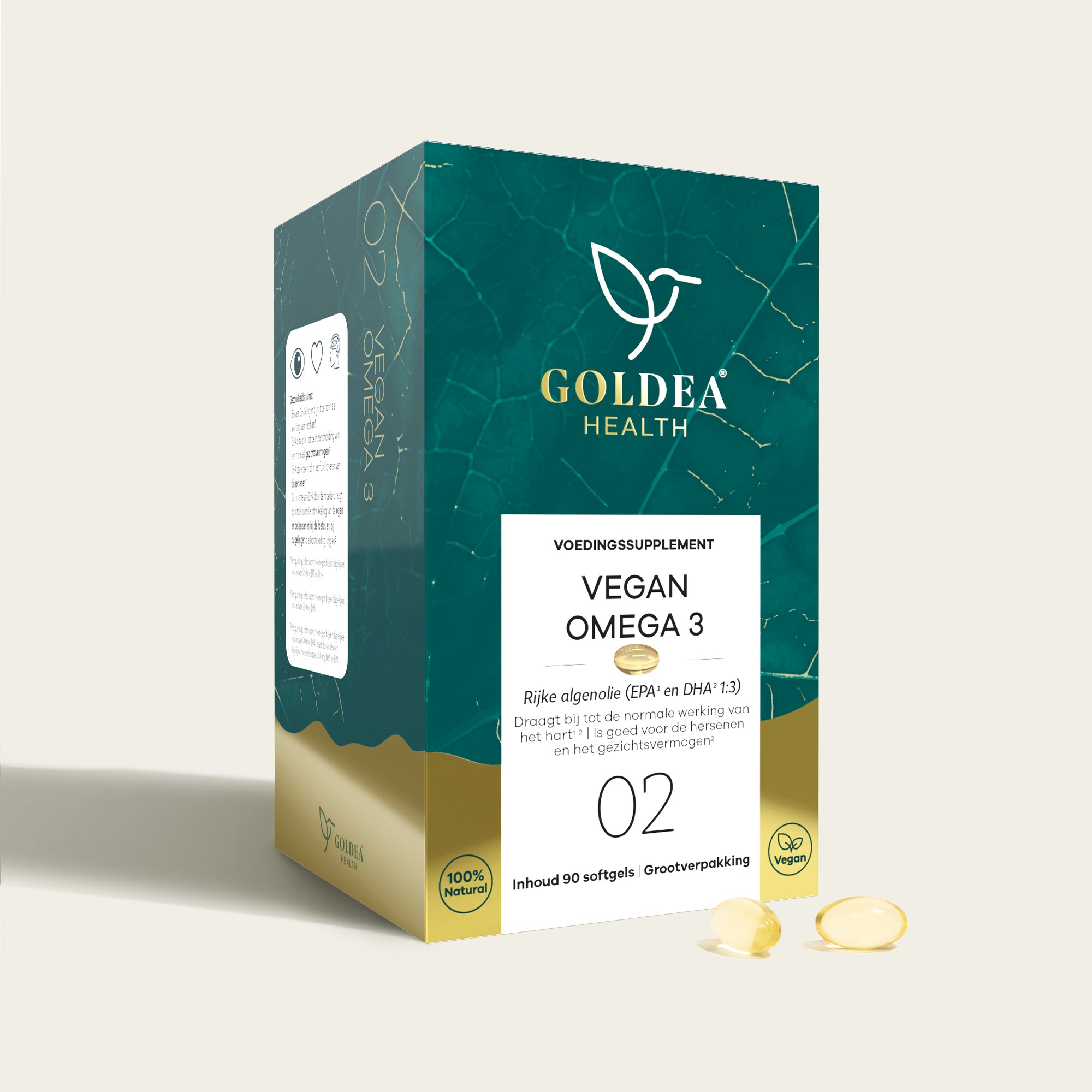
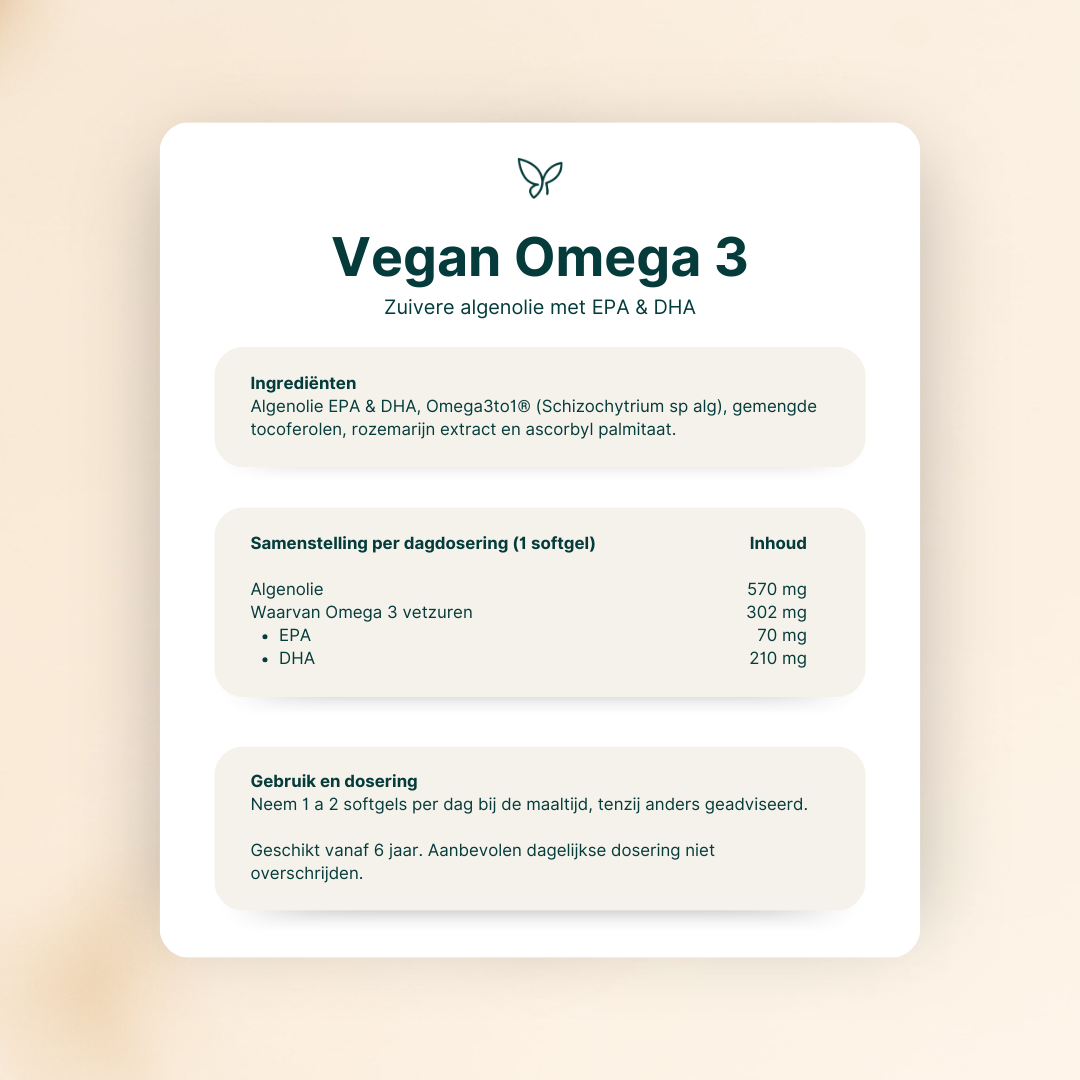









Vegan Omega 3
Taking our Vegan Omega 3 daily can contribute to a more stable mood and is recommended for anyone looking for natural alternatives to antidepressants.
8. Griffonia – Natural source of 5-HTP
Griffonia simplicifolia is a plant that naturally contains 5-HTP , a precursor to serotonin. It can help improve mood and promote calming effects.
At Goldea Health, we add Griffonia, along with passion flower, lemon balm, and chamomile, to our Mood Control supplement , specially developed to support people with mood swings.
Click here for the supplement. Dosage:
1 capsule per day in the morning
9. Passion Flower – Calms body and mind
Passionflower is traditionally used to reduce tension and help the body relax. It has a mild sedative effect and is a valuable addition for anyone suffering from nervousness or insomnia .
10. Melissa and Chamomile – Calming herbs
Lemon balm is known for its relaxing properties and helps reduce anxiety and stress . Chamomile also has a calming effect and promotes sleep, which is important for recovery. The combination of lemon balm and chamomile in our supplements therefore provides a calming effect without side effects.
Mood Control has been specially developed as a natural alternative to antidepressants and contains a mix of the above-mentioned herbs, supplemented with probiotics ( which contribute to better digestion, support the immune system and can reduce inflammation ) and vitamin B12 .
This combination is unique on the Dutch market and not only helps improve mood, but also supports healthy intestinal flora.


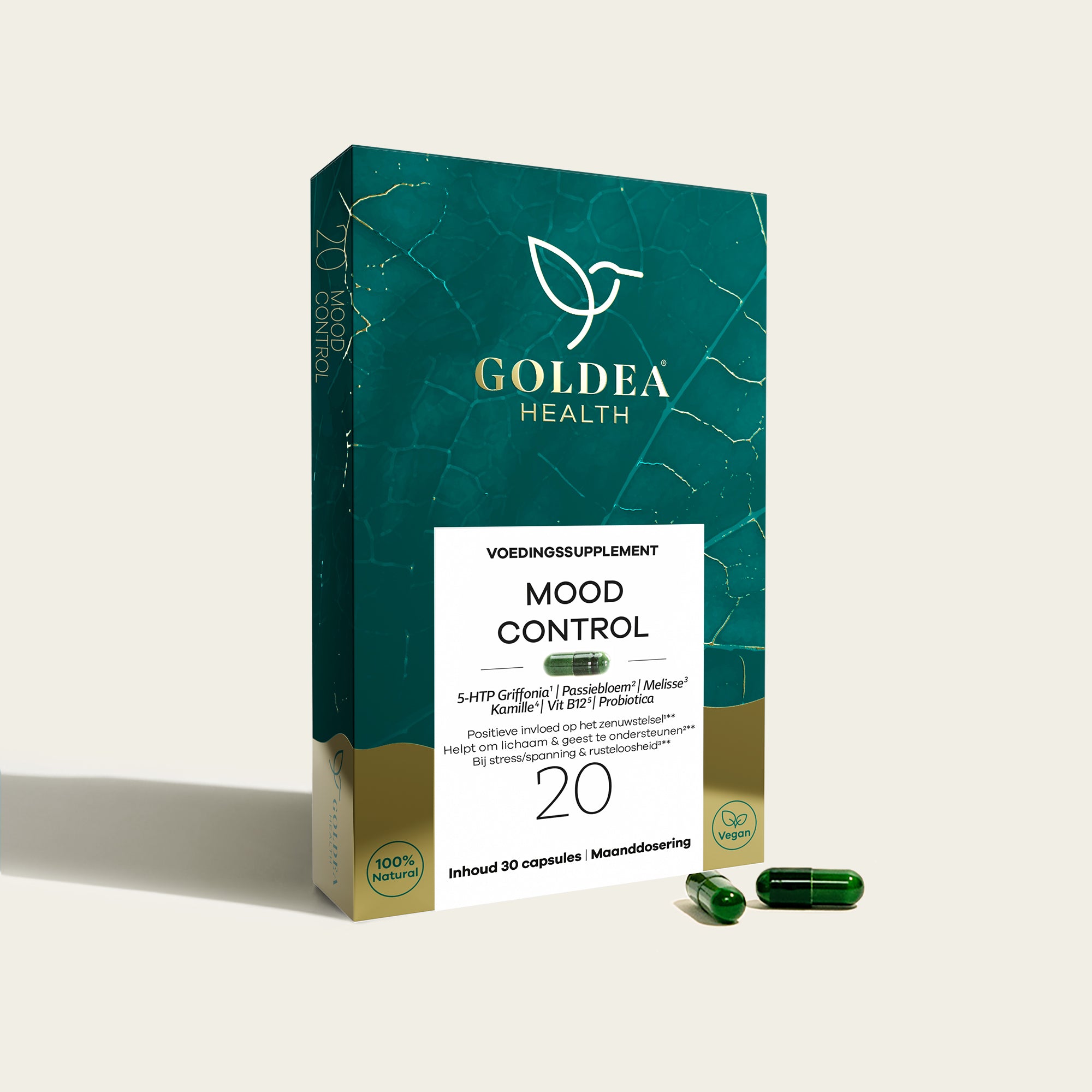
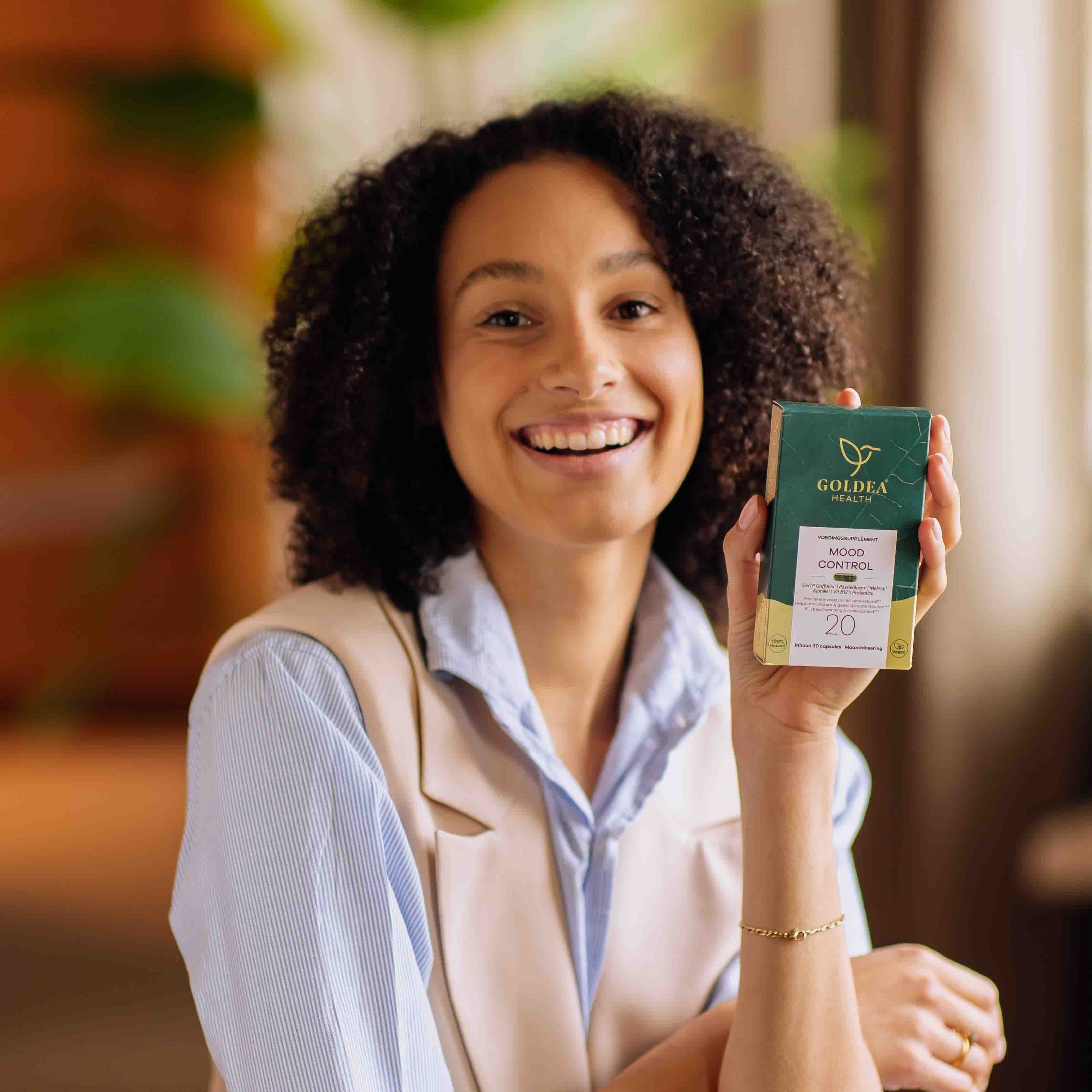
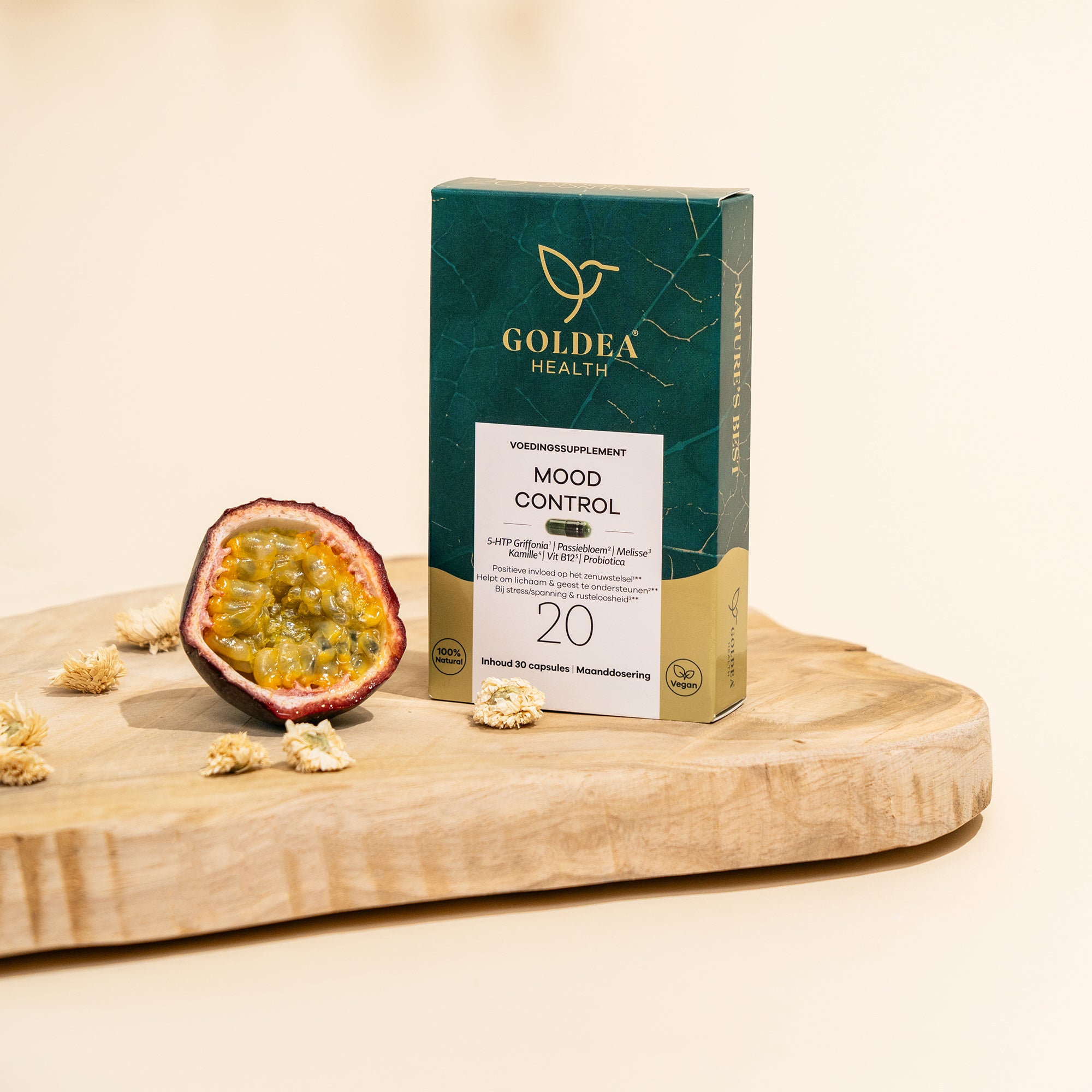
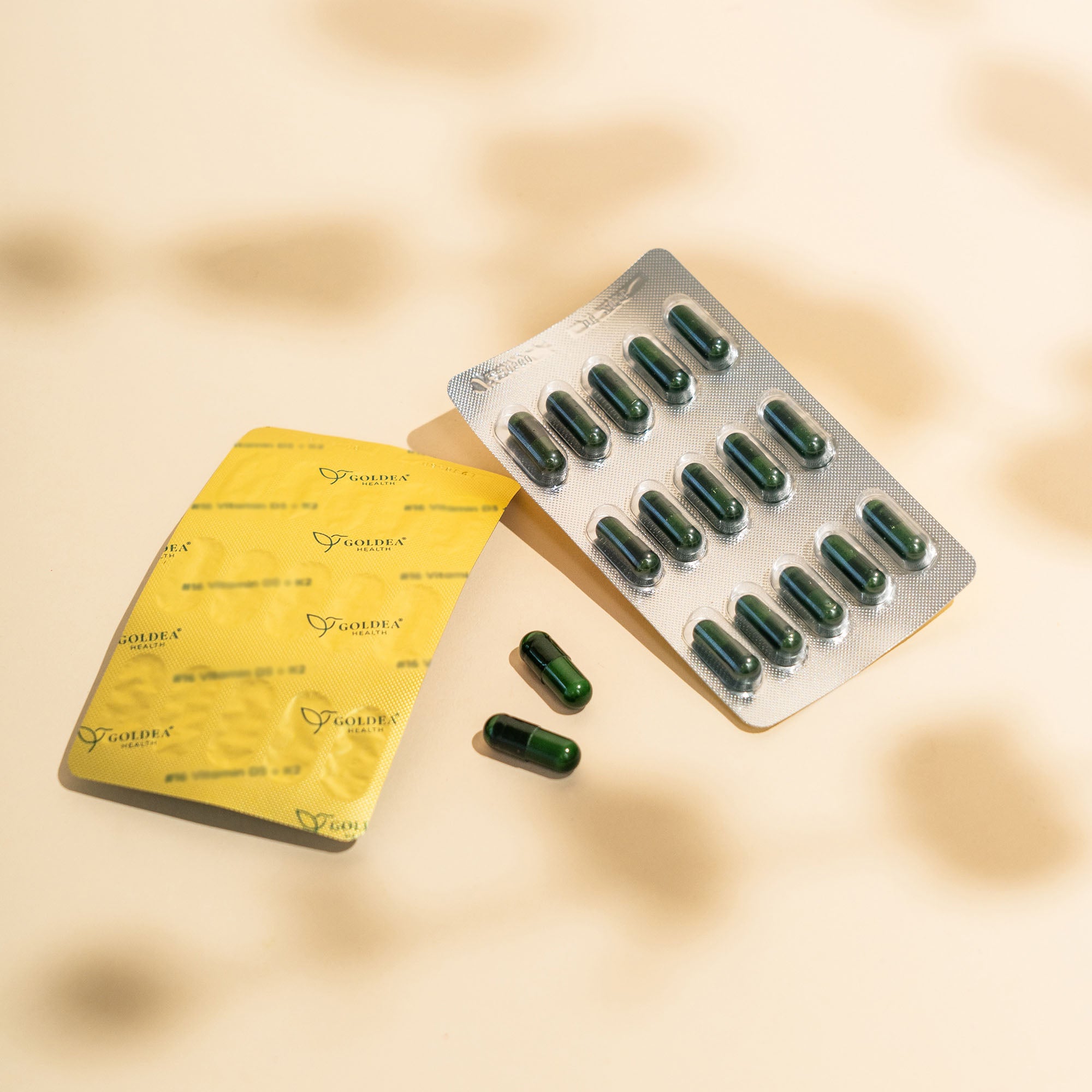
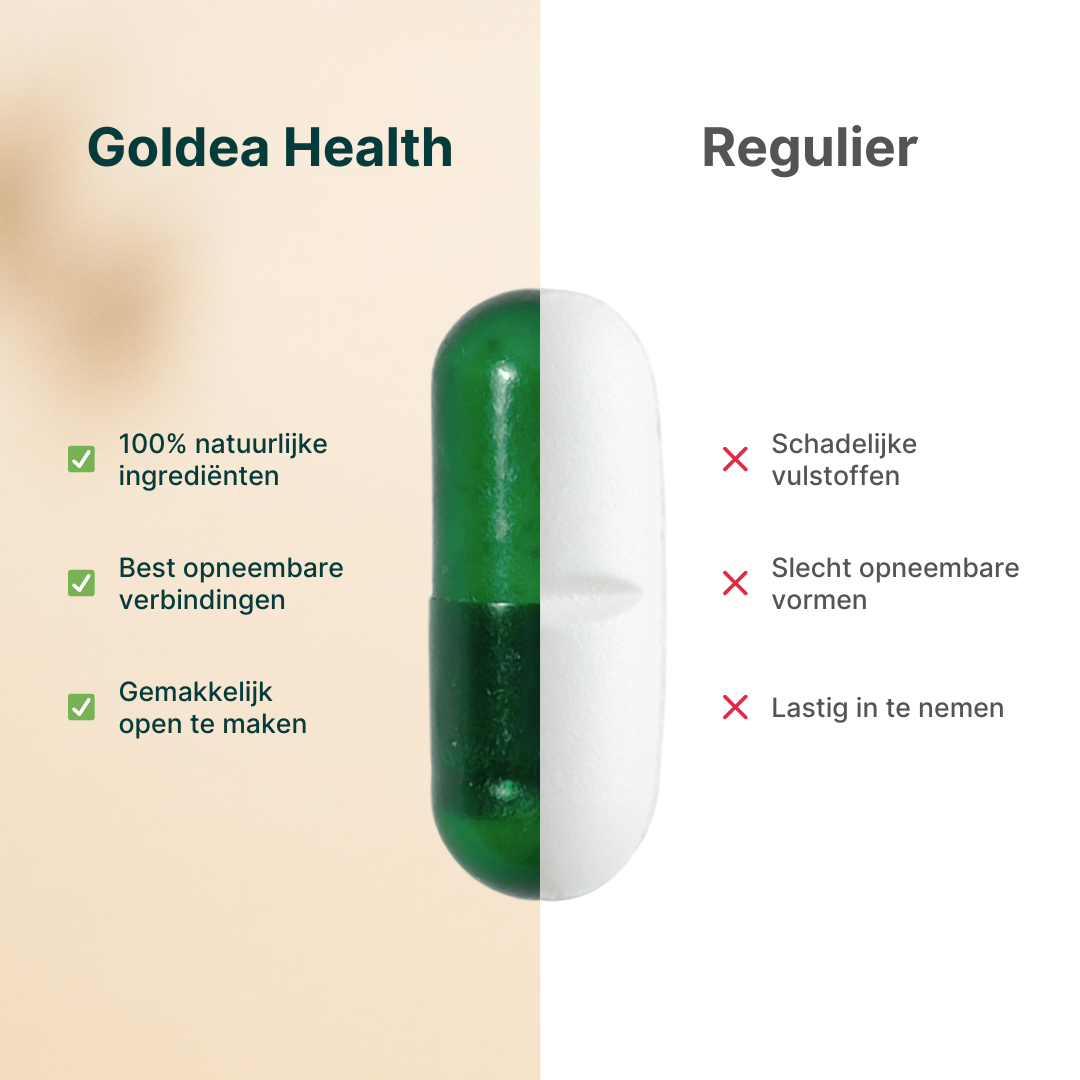
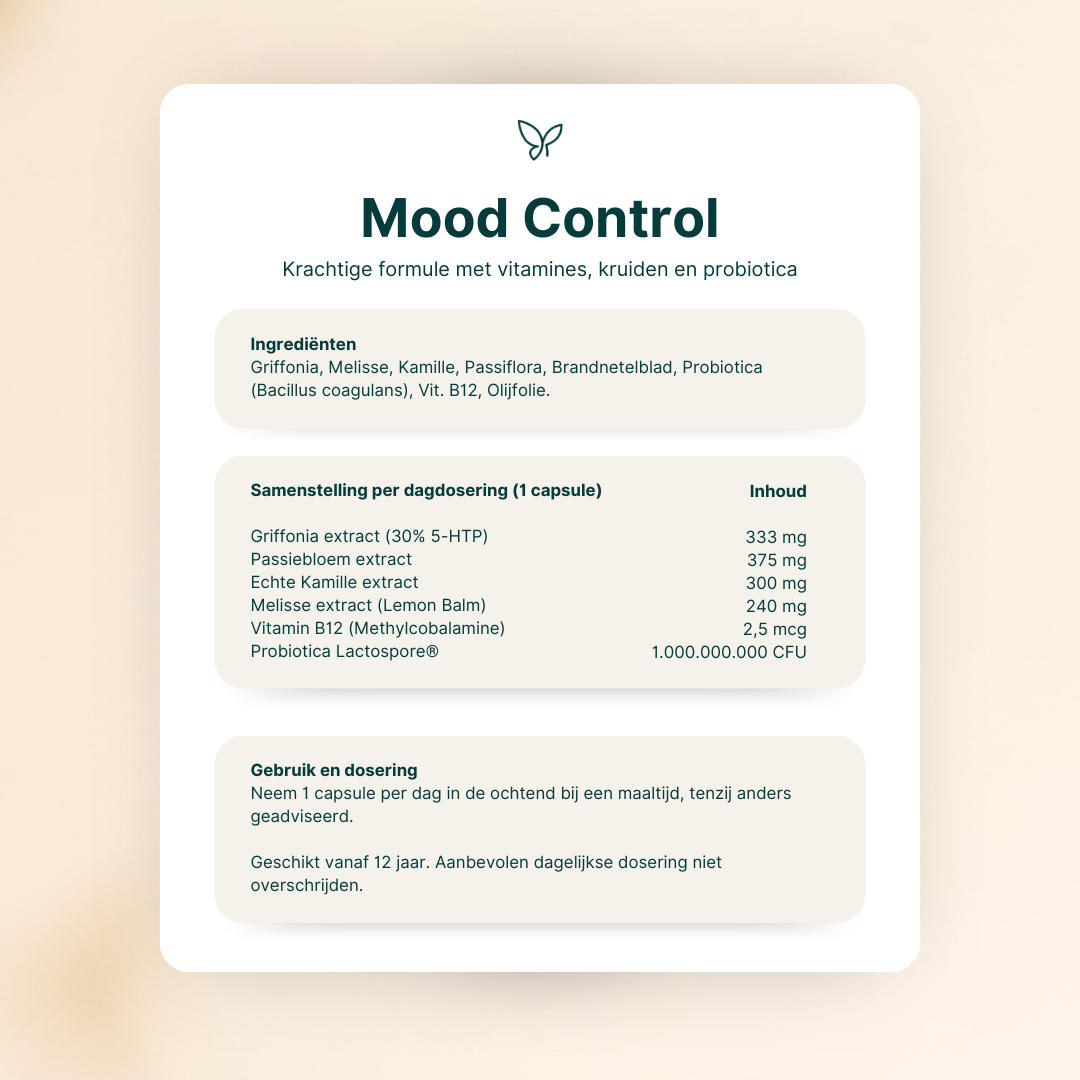









Mood Control
This combination allows Mood Control to work on multiple levels to support your mood and health. Did you know that our intestines are also called our "second brain" ? Healthy gut flora can positively impact our mental health and help us feel happier.
Bonus tools you can add to your lifestyle
Natural antidepressants work best when combined with a healthy lifestyle. Here are some tips that may help:
Regular exercise : Physical activity stimulates the production of endorphins, which make us happier.
Healthy diet : A healthy and balanced diet includes lots of vegetables, fruit, proteins and healthy fats.
Mindfulness and relaxation : Meditation and breathing exercises help to reduce stress.
Sleep : Make sure you get enough sleep, as sleep deprivation can negatively affect your mood.
Finally
Treating depression without chemical agents is not only possible, but also effective and sustainable. Natural alternatives to antidepressants can provide support without harmful side effects. Try our Mood Control and discover the power of natural antidepressants for yourself.

Goldea Sunday News
Every Sunday a short newsletter with practical tips and insights that will really help you achieve optimal health.
FAQs
What are natural antidepressants?
Natural antidepressants are substances such as vitamins, herbs, and nutrients that can help improve mood and reduce depressive symptoms without the side effects of synthetic medications.
Which vitamins can contribute to a better mood?
Vitamins such as B1, B3, B6, B9, B12 and D3 play an important role in energy balance and the production of neurotransmitters, which can help improve mood and reduce depressive symptoms.
Can I use natural antidepressants instead of medication?
Yes, natural alternatives can provide effective support for depression, especially when combined with a healthy lifestyle. However, it's important to seek advice from a healthcare professional, especially if you're already taking medication.
What is the role of omega-3 fatty acids in depression?
Omega-3 fatty acids have proven antidepressant effects, support brain function and can reduce inflammation, which can contribute to a more stable mood.
How can I improve my lifestyle to alleviate depressive symptoms?
Regular exercise, a healthy diet, mindfulness, sufficient sleep and the use of natural supplements can all have a positive effect on mood and mental health.
Sources:
Carney, R., et al. (2016). "The association between diet and mental health in children and adolescents: A systematic review." Journal of Affective Disorders , 207, 349-364.
Explores the relationship between nutrition and mental health, including the role of vitamins and minerals in mood and depression.
Rao, T. S. S., Asha, M. R., Ramesh, B. N., & Jagannatha Rao, K. S. (2008). "Understanding nutrition, depression and mental illnesses." Indian Journal of Psychiatry , 50(2), 77-82.
This study discusses the role of nutritional deficiencies, such as B vitamins and omega-3 fatty acids, and their impact on mood and depression.
Young, S. N. (2007). “How to increase serotonin in the human brain without drugs.” Journal of Psychiatry & Neuroscience , 32(6), 394-399.
This article discusses ways to increase serotonin levels through natural sources, such as diet and lifestyle, which is relevant to the use of 5-HTP from griffonia.
Appleton, K.M., et al. (2010). "Omega-3 fatty acids for depression in adults." Cochrane Database of Systematic Reviews , Issue 6, Art. No.: CD004692.
This systematic review analyses the effect of omega-3 supplements on depressive symptoms and provides supporting evidence for their use as an alternative to antidepressants.
Shahidi, F., & Ambigaipalan, P. (2015). “Phenolics and polyphenolics in foods, beverages and spices: Antioxidant activity and health effects – A review.” Journal of Functional Foods , 18, 820-897.
This review discusses the health benefits of herbs such as passion flower and lemon balm, and their potential to reduce anxiety and stress, which is relevant to their calming effects in supplements.





